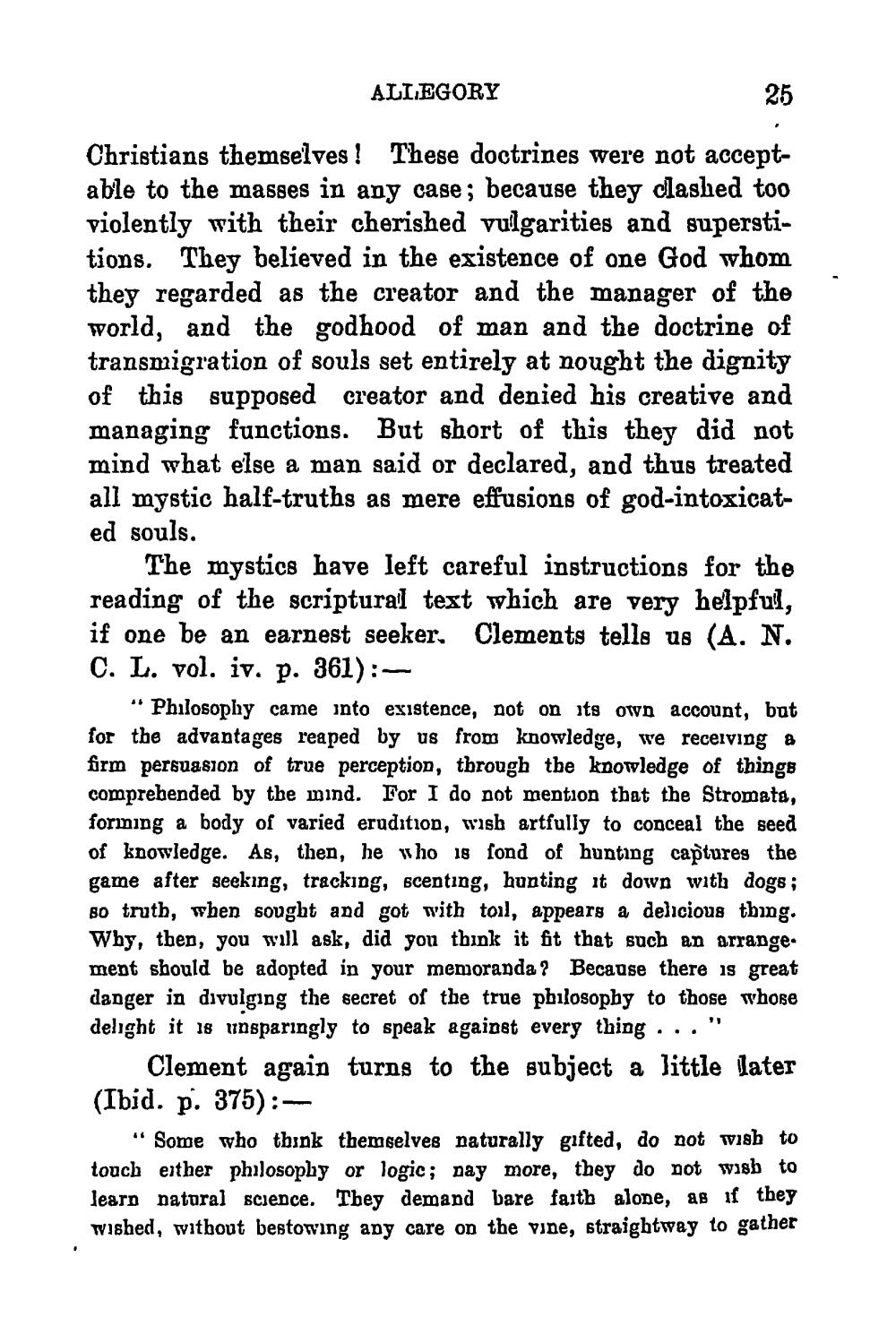________________
ALLEGORY
21h
Christians themselves! These doctrines were not acceptable to the masses in any case; because they clashed too violently with their cherished vulgarities and superstitions. They believed in the existence of one God whom they regarded as the creator and the manager of the world, and the godhood of man and the doctrine of transmigration of souls set entirely at nought the dignity of this supposed creator and denied his creative and managing functions. But short of this they did not mind what else a man said or declared, and thus treated all mystic half-truths as mere effusions of god-intoxicated souls.
The mystics have left careful instructions for the reading of the scriptural text which are very helpful, if one be an earnest seeker, Clements tells us (A. N. C. L. vol. iv. p. 361):
“Philosophy came into existence, not on its own account, but for the advantages reaped by us from knowledge, we receiving a firm persuasion of true perception, through the knowledge of things comprehended by the mind. For I do not mention that the Stromata, forming a body of varied erudition, wish artfully to conceal the seed of knowledge. As, then, he who 18 fond of hunting captures the game after seeking, tracking, scenting, hunting it down with dogs; 80 truth, when sought and got with toil, appears a delicious thing. Wby, then, you will ask, did yon think it fit that such an arrange. ment should be adopted in your memoranda ? Because there is great danger in divulging the secret of the true pbilosopby to those whose delight it is unsparingly to speak against every thing ..."
Clement again turns to the subject a little later (Ibid. p. 375):
" Some who think themselves naturally gifted, do not wish to touch either philosophy or logic; day more, they do not wish to learn natural science. They demand bare faith alone, as if they wished, without bestowing any care on the vine, straightway to gather




